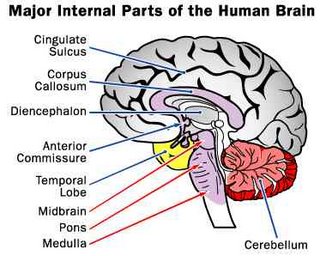 It has been almost a year since I made the transition from the hallowed halls of the academy to the cut and thrust of a ministry 'in the marketplace'. This has been quite a remarkable change in method and approach to ministry - not to mention the complexities of having to learn to cope within an entirely new set of rules and 'meaning making' frameworks and rules.
It has been almost a year since I made the transition from the hallowed halls of the academy to the cut and thrust of a ministry 'in the marketplace'. This has been quite a remarkable change in method and approach to ministry - not to mention the complexities of having to learn to cope within an entirely new set of rules and 'meaning making' frameworks and rules.
Today a colleague asked me about some of my research into the functioning of the brain and I was reminded of the three forms of intelligence that most commonly operable in any relational system (such as a work environment, or a community).
1. Intellectual Quotient (IQ): This one is quite well known. Some years ago one would have to undergo an IQ test in order to get a good job! The higher your intellectual quotient the more intelligent you were assumed to be. Now that is true up to a point. Persons with a high IQ are generally capable of doing linear (rule based) calculations and decisions rapidly and accurately. For example a person with a high IQ can look at a chess board, visualize all of her opponents possible moves (since these are dictated by the rules of chess), consider all her own possible moves, and then decide which move is best at this point in time taking all of the possible variables into account. But, if the other person cheats, or something happens that disrupts the rules of the game (e.g., the opponent is schooled in a different set of rules) the IQ based player does not perform too well.
2. Emotional Quotient (EQ): This is the second form of intelligence - it gained quite a lot of interest after the popular work of Daniel Goleman. A person with a high EQ is able to take a further 'intelligent' step in a relational system. This person understands the rules of chess well enough, but he also is clever enough to be able to read and study his opponent (the relational element of the game). For example, he knows that moves his opponent favors, how long it takes his opponent to make a move when he is confident, and how long it takes when he is unsure. In other words, he is not only playing the game of chess with the chess pieces on the board, he is playing the game of chess by reading the actions and reactions of his opponent (a game such as poker requires a much higher level of EQ than IQ to master). Companies came to realise that they needed people with a high EQ to get ahead. Whereas a person with a high IQ understands the rules, a person with a high EQ knows how to get the most out of working between, around, and with the rules of the game. Such a person makes a good analyst since they can read the shifts in the market, understand people's fears, aspirations and inclinations. A person with a high EQ does this without having to give it too much thought or time... It is almost like they have a natural feel for reading emotions and relationships and can react rapidly and reliably to what is sensed and observed. The best way to develop EQ is to create an awareness of the 'unseen' things that affect decisions in any relationship.
I often 'read the people' in a meeting to understand what is truly motivating a person's behavior, choices, and decisions. I have become quite astute at this, and can even do it from an email, blog post, or other form of non direct communication. I am not easily manipulated. A high EQ gives you the capacity to respond quickly and appropriately to sudden, and unseen, changes in a relational environment.
3. Spiritual Quotient (SQ): This is the third kind of intelligence that one encounters most commonly in relational systems. Whereas IQ is linear (it knows, understands, and processes the rules quickly and accurately), and EQ is parallel (it works between, in spite of, and with the rules to get the most return by 'gaming' the system), SQ is a transcendent intelligence... What do I mean by this? Well, the IQ person plays chess well since she knows the rules. The EQ person is a little better since she can read the rules and read her opponent (being able to predict his moves even before they are made). The SQ person on the other hand is transcendent - this person asks questions that transcend the rules, such as 'Is playing chess the best way to spend my time?', or 'Does it matter whether I win or loose this game of chess, as long as I can spend this time connecting with my friend.' People with a high SQ cope much better with change, adversity and challenge.
Of course there is a myriad of literature on this in the subjective sciences (see for example James Fowlers' stages of faith development, and Ken Wilber's holarchies and integrative theories).
All of these forms of intelligence are present in all individuals and communities. Moreover, they are present at different levels and in different ways. Some of us have a lower IQ and a higher SQ (a classic case in point would be the character 'Forrest Gump' in the Hollywood movie by the same name). Other persons have an extremely high IQ but lack EQ (such as the Nerds in the popular Television Sitcom, 'Big Bang Theory' - Bill Gates is a class example of a high IQ person. Such persons seldom have a realistic self awareness, they regard themselves as different, special and often struggle to relate to persons who cannot see the world as they see it - in binary, black and white, yes and no. They may come across as arrogant, but they are not. They simply have a low EQ and so default upon their IQ to cope with challenges and changes, not relying on relationships and the input of others...)
SQ persons are generally the 'stage 5' persons in Fowler's schema - these are deep, highly integrated, gracious, loving, inclusive persons (such as Jesus as we encounter him in Matthew 5-7), a more contemporary example would be the Dalia Lama, and Mahatma Ghandi (at least that is my uninformed perception of these persons).
So, that's the theory of intelligence in relational systems....
BUT, there is a further complication when it comes to working relationships and loving relationships, that is the complexity of language as a means of engaging others and sharing self. The problem with language is that it is ultimately symbolic - it is a 'digital' encoding of analog realities (to use the metaphor of computer science).
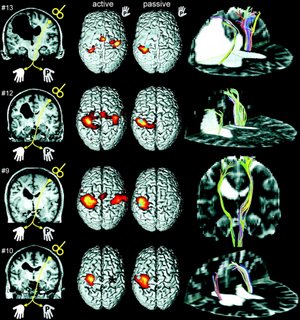
For example there is no such thing as 'ontological orange' (i.e., a colour orange that is exactly the same, quantifiably, for every person in existence), but that does not mean that we cannot all relate in some way to an 'existential' and 'experiential' orange. If I can find enough 'symbolic' convergence with you I can communicate something of my understanding of what orange is for me, and understand what orange is for you in order for us to create a meaningful engagement around 'orangeness' Does that make sense? Of course a person with strong IQ will want to offer a quantifiable and measurable explanation of orange (i.e, pointing to an orange object), but that means very little, because how can one be sure that what I see as orange will be seen by you in the same exact manner? A person with a high EQ will want to establish first what you believe orange to be (so go to the further shore) and then work back towards their own understanding of orange (building a bridge back from the further shore to their own shore). A person with a high SQ isn't going to worry too much about whether we have the exact same understanding of orange, or even whether our experiences share much in common - rather this person will focus on the reason WHY they wanted to engage you around the concept of orangeness in the first place (the conceptual engagement is more important than the concept around which one is being engaged).
Now, let's add one further layer of complexity (I'm sure that by now no-one is reading any more... If you're still reading by this point PLEASE leave a comment in the comments box to show how intelligent you are!)...
Up to this point we have been talking about intelligence in relationships around SINGLE words... But, we seldom communicate and relate around single words, rather we use language (spoken and unspoken) to communicate complex concepts (for example affirmation, gratitude, love, anger, support etc.) These concepts are communicated by means of progressively growing 'communicative' units (e.g., words that form sentences, that express an idea in a paragraph, that communicate a message in a letter, that represent an aspect of a relationship with an individual, who exists within a family, that is part of a community, in a city, as part of a nation, on a continent in the world). One could also use the 'non spoken' forms of communication (the teenager who rolls her eyes at her dad, to communicate a difference of opinion about a cultural expression of what it means to be cool at a particular stage in history in a particular geographic location).
What SQ allows one to do is engage with the overall complex discourse (the whole book, the whole culture, the whole planet) in a manner that is meaningful and not overwhelming, without having to deconstruct the relationships into their constituent parts in order to meaningfully engage them.
The King James Version of the Bible is a classic example of an IQ approach to solving a complex problem - you have a Greek text of the New Testament, so you try to translate each word of the Bible as accurately as you can with its English equivalent. The end result is that you have an 'English' text that reads like Greek and the deep meaning for which the text was recorded is lost in the deconstructed details...
SQ allows for the recognition of genre in life... It allows me to understand that not every relationship needs to be equally deep - I do need to have a deeper, more meaningful and real relationship with my wife and kids, but I don't need to press every relationship in that same intense mold (e.g., the person who fills my car with petrol can be related to in a different, significant, manner that is appropriate to that genre of relationship).
So, what's the bottom line? Well, for me the bottom line is this - The Trinity. Relationships in all of their complexity and beauty are the true means by which we find fulfillment, integration and fullness of life. The SQ state in the brain is an integrative state of 40 hertz oscillations across the whole surface of the brain. In the Trinity the integrative relationships of the persons of the Trinity are the very source and substance of true identity and meaning (the son is son, precisely because he is son of the father... Withouth the son, conversely, there would be no 'God the Father', just God the bloke... relationships are key to meaning, identity and difference).
A year after entering ministry in the corporate environment I realise that I am still as mystified, blessed, and enriched by relationships. I am thankful that God has given me both insight, capacity, and a deep love for understanding people and relational systems. It does help me to transcend about some of the everyday struggles, small squabbles, and momentary rewards that drive so many people to act and react in certain ways. I would love to say that I am free from 'shallow' responses to complex problems - I am not... But, at least I am aware of them!
It discusses a number of these issues in a more disciplined and clear manner, showing how we need to move beyond the shallow symbolism of language, self, to the mystery of the experience of God in Christ to find fullness of life and freedom.
By the way, I have found that this approach to communication (i.e., communication as an interaction of relationship) makes the reading of the Bible so much deeper! For example John's Gospel is certainly a 'performative' Gospel (i.e., John argues in John 20:30-31 that the purpose of this Gospel (the reason for recording the signs and sayings of Jesus) is to bring people to faith and deepen the faith of those who are already in a relationship with Christ... The purpose of the Gospel is to communicate a depth of
relationship, not to share facts, figures, and history). So, I read the Gospel of John to see how my relationship to the person of Christ, and my relationship to those whom Christ is in relationship with (or longs to be in relationship with) can be deepened and developed. It is a slightly more complex hermeneutic since it requires some form of interaction between the reader and the text (and imaginative engagement with the narrative as a performative text).
My friend, Jan van der Watt puts it this way in his paper on the ethics of the Gospel of John (as a performative ethics):
Texts consist of progressively growing language units starting with words, and ending in a full document. This "interrelated grouping together" of language units (structuring) is based on the language conventions of that particular language. Inherently part of the communication process is the chosen genre, which serves as the overall discourse compositional template. Some theorists even argue that genre is the most determinative aspect in the process of communication, since genre sets the stage for interpreting words, phrases, etc. and influences decisions on all levels of the creation of the text. Rhetoric is also a communication strategy that influences the text from the very moment of its formation. The way in which words and phrases are formed, choices as to which stylistic features should be included, etc. all relate to rhetoric. Genre and rhetoric are also interrelated, since the genre will depend on the rhetorical strategy and vice versa.
The total textual process is socially determined, from the meaning of words, the way syntax and structures work, the function and characteristics of language as well as rhetoric. Language is a social phenomenon and social knowledge play a determinative role in constituting communication.
Relationships seem to be key to unlocking the complexity of meaning, dealing with missunderstanding, the functioning of the human brain and finding freedom!






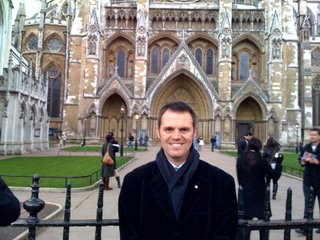
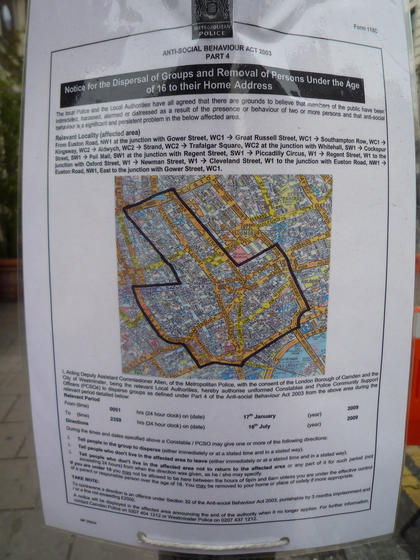
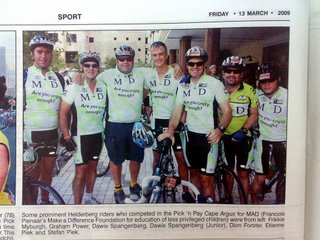




 .
.
 .
.




